Kale has amazingly great benefits and is really good for you. Kale is a food trend that is now getting popular because of health benefits and celebrity fan following. Yes, until 2010 this leaf was not so popular until it gained attention in social media. Now the things are so popular that we are writing a detailed article for it.
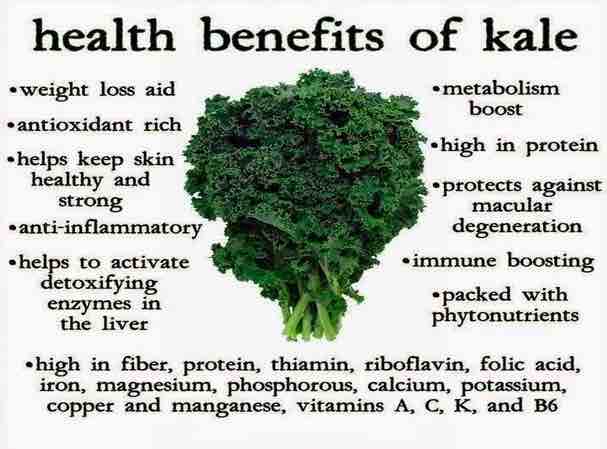
Along with broccoli, it is one of the nutrition stand-outs among vegetables. It fights fat through its ability to mingle in a variety of roles — in side dishes, combined in main dishes, or in salads. But we have to understand the advantages of eating it.
Is Kale Good For You
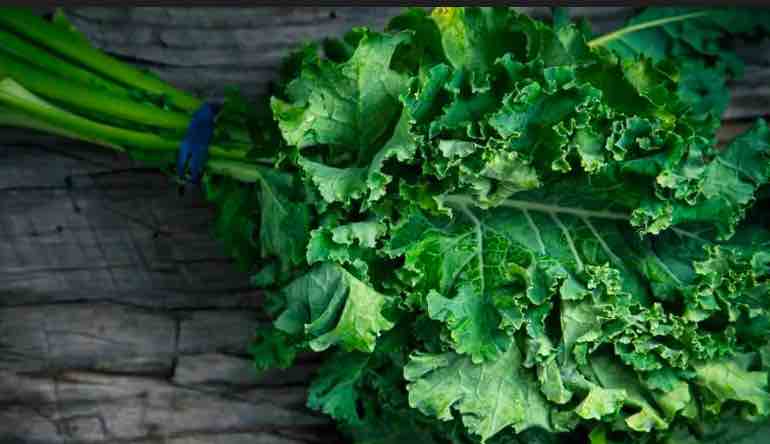
Yes, Kale contains a plant chemical called glucosinolates, that is broken down into isothiocyanates and indole-3-carbinol after chewing, chopping, or cooking. These same substances are being researched for their proposed ability in humans to affect chronic conditions including certain types of cancer and heart disease.
In nature, glucosinolates act as a first-line defense for plants, protecting them from environmental and biological stresses (insects, fungi, drought conditions).
Not only one of the best sources of beta-carotene, it protects from chronic diseases.
In addition to beta-carotene, kale posses other important carotenoids: lutein and zeaxathin. These carotenoids help keep UV rays from damaging the eyes and causing cataracts.
According to recent research results, kale is an incredible source of well-absorbed calcium, which is one of the many factors that may help prevent osteoporosis. It also provides decent amounts of vitamin C, folic acid, vitamin B6, manganese, and potassium.
Infographics with details is kale good for you
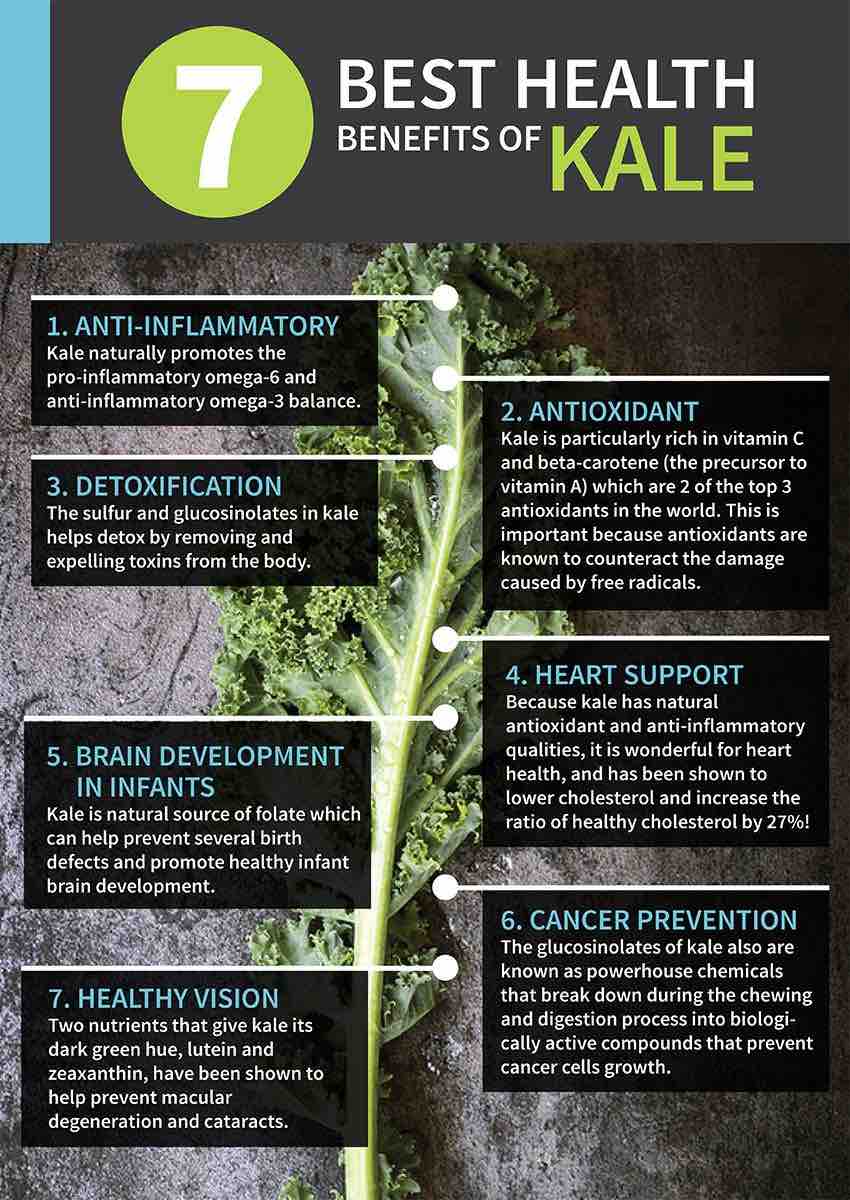
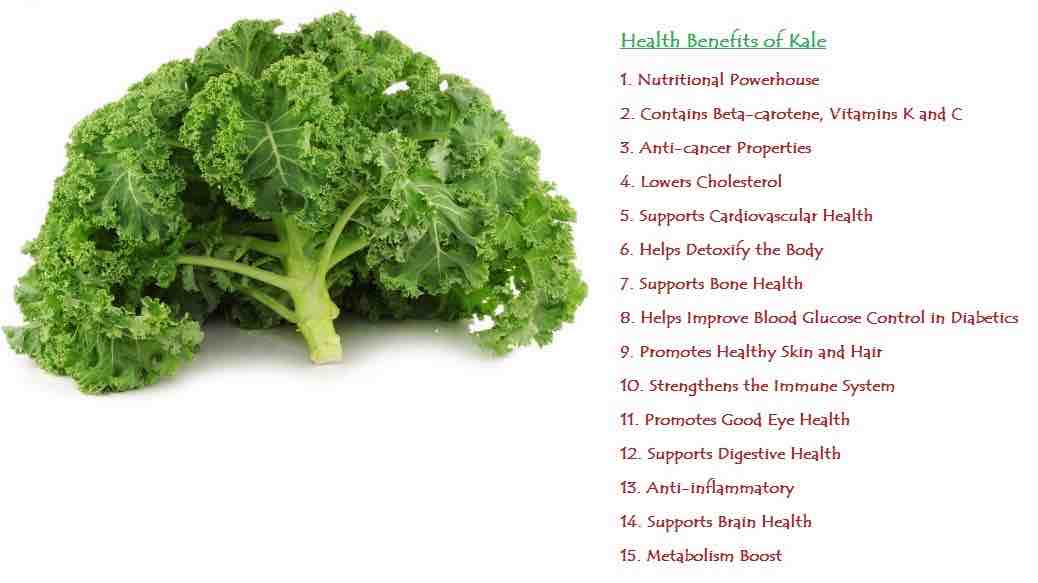
Kale Nutrient Content
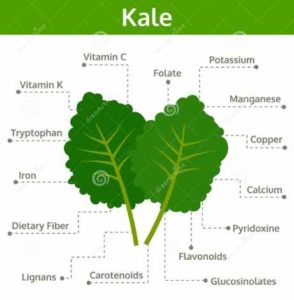
Serving Size: 1/2 cup
| Calories | 18 |
| Fat | 0 g |
| Saturated Fat | 0 g |
| Cholesterol | 0 mg |
| Carbohydrate | 4 g |
| Protein | 1 g |
| Dietary Fiber | 1 g |
| Sodium | 15 mg |
| Vitamin A | 8,854 IU |
| Folic Acid | 9 micrograms |
| Vitamin C | 27 mg |
| Calcium | 47 mg |
| Magnesium | 15 mg |
| Potassium | 148 mg |
| Carotenoids | 17,172 micrograms |
A Quick Recipe to eat Kale
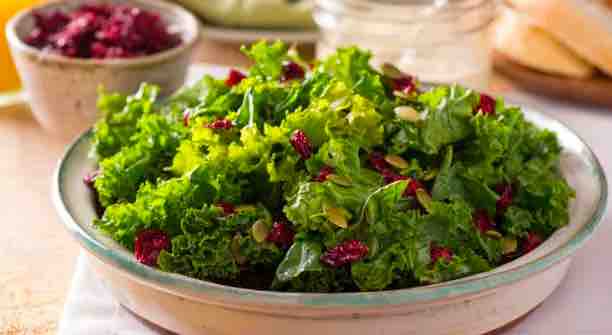
- Add kale leaves to soups, stews, and casseroles at the start of cooking.
- Add a few handfuls of chopped kale into a burger mixture before cooking.
- Use large hardy lacinato kale leaves as a wrap to replace bread or tortillas.
- Add a handful of kale leaves to smoothies.
Listing the Health Benefits of Kale
- Kale is high in iron and Vitamin K.
- It helps in digestion.
- Kale has huge number of anti oxidants.
- It has anti inflammatory properties.
- Huge quantity of vitamin A.
- A great detox food.
Suggested Rea: How can you follow a simple diet plan and look more beautiful.
Leave a Reply